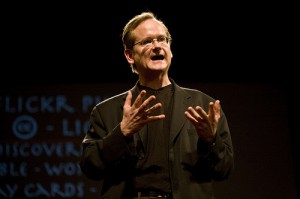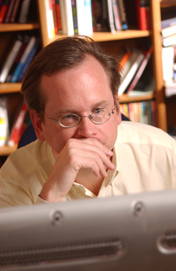Lawrence Lessig has been appointed to the faculty of Harvard Law School, and as the faculty director of Harvard University’s Edmond J. Safra Foundation Center for Ethics. The announcement was made jointly today (Dec. 12) by Harvard University Provost Steven E. Hyman and Harvard Law School Dean Elena Kagan.
“Harvard is fortunate to have such an outstanding scholar at the helm of one of its finest organizations,” said Hyman of the Center appointment. “Lawrence brings with him tremendous vision and administrative experience, which will serve the center well as he continues to build upon its remarkable success.”
As faculty director of the Center, Lessig will expand on the center’s work to encourage teaching and research about ethical issues in public and professional life. He will also launch a major five-year project examining what happens when public institutions depend on money from sources that may be affected by the work of those institutions — for example, medical research programs that receive funding from pharmaceutical companies whose drugs they review, or academics whose policy analyses are underwritten by special interest groups.
“I am very excited to be returning to Harvard to work on a project of enormous importance to our democracy,” said Lessig. “The chance to extend the work of the Center to focus on the problems of institutional independence is timely and essential. I am eager to work with friends and old colleagues from the Law School and across the University to make this project a success.”
Lessig will join the Law School faculty and take up his duties as director of the Center in the summer of 2009.
Photo by Robert Scoble Under CC-BY License




